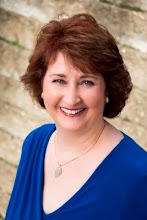An excerpt
Rose rubbed her palm over her temple as she stalked from Dr. Nelson’s cottage. The doctor was an insufferably insecure man, even if she had acted too brazen. His rejection weighed on her confidence, but she’d have to make amends so he wouldn’t scurry off like a rabbit.
It shouldn’t be a sin to want to be someone useful, a student of medical science instead of a master of perfect hem stitching. She’d proven herself smarter in her schooling, plus applying in a limited capacity the medical texts she’d read. Now she yearned to use her knowledge to promote healing.

Rose blew out her breath. Forced to leave America, she’d convinced herself that as a stranger she might find it easier to establish herself among people who didn’t know her. Had she been foolish to believe she could shape this village to her wishes? An ancient land of castles and traditions might thrust up higher walls for her to scale.
Her resolution returned; she stiffened her spine. She needed to become a part of a doctor’s—any doctor’s—practice.
Near the mill, an old woman hovered, staring. She wore a threadbare blue dress over a squat form and a red shawl with fringe about her shoulders. Hatless, her round face a network of wrinkles, she had wispy white hair that floated in the breeze.
Rose nodded politely and kept walking.
“Dydh da, a good day to you, Miss.” The old woman smiled, revealing a missing front tooth. “I’m Mrs. Trew. Hebasca they call me, an’ I need to talk to you, if you please.”
Rose paused, not wishing to be rude to the villagers. “I’m Miss Gwynn and I’m actually in a rush. We’ve recently moved in and there’s so much to do.” Still flustered, she longed for time to plan her next strategy. “Why did you need to speak with me?”
“You’re one o’ the new tenants at Avallen, an’ look a mite disappointed.” Mrs. Trew drifted nearer in a scent of sage. She had odd, yellow eyes, which she prodded over Rose. Perhaps she suffered from jaundice. “I see you’ve visited the lending library an’ visited with our Damawyn.”
“I wanted to research my ancestors who are supposed to be from this area.” Rose gripped her books, restless to continue on. “And find out some of the local history. Now if you’ll excuse me.”
“I’m the village charmer.” The old woman touched her finger to the side of her right eye. “Ask me what you seek. I know the history here; you don’t need no books for that.”
Rose took a step away. “That’s very kind of you, Mrs. Trew. Perhaps another time?”
“Hebasca, I insist. An’ there’s no time like the now. Me cottage be over there.” She placed her gnarled hand on Rose’s sleeve and pointed.
A sudden breeze sent Rose’s hair tickling along her neck. The clob cottage—built with a mixture of slate into the wattle and daub her father had explained—crouched across the road in a yard tangled with brambles and gorse. Its roof had thatch missing in places, and the shutters were worn and peeling paint.
Reluctant to visit there, Rose tested the old woman. “Do you know anything about the big stone ring near the cliff behind Avallen?”
“Ess? You seen it already, have you?” Hebasca nodded slowly, a wry grin curling her thin lips. “The ancient ones believed, and some still do, that if you be ailin’ or struck down with disease, if you crame on all fours...”
“I’m sorry. Crame?”
“That be the local word. If you crawled on all fours through a ringed stone, nine times backened to the sun, the ancients believed it would cure your ills.”
Rose recalled the ridiculous sensations she’d felt when she viewed the ring. “How peculiar. I guess ‘backened’ means your back to the sun?”
“It do.” The old woman’s cat-like eyes gleamed.
“Of course it’s all nonsense.” Rose prided herself on her steadiness, not given to vapors or swooning as many girls were.
“Not to people here.” Hebasca grasped Rose’s arm and tugged her across the road. “Cummas 'zon, an’ we’ll share a cup o’ tea. I’ll tell you more tales. Your ancestors are from hereabouts. That story be a bleak time from Lankyp’s past.”


.jpg)





























.jpg)



























